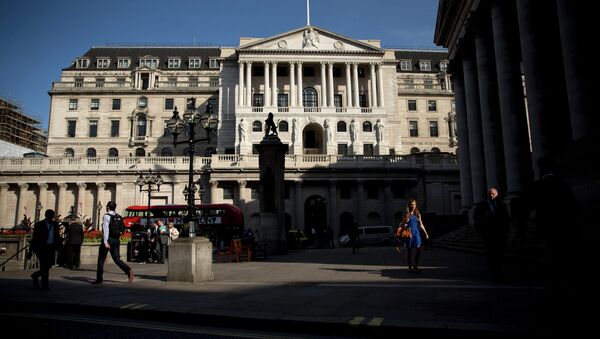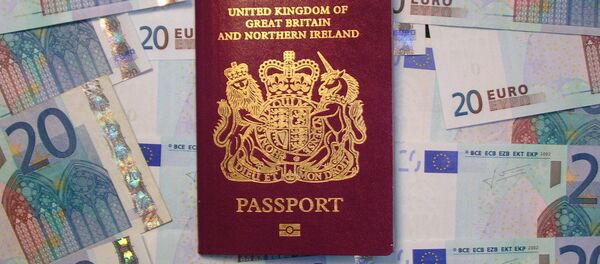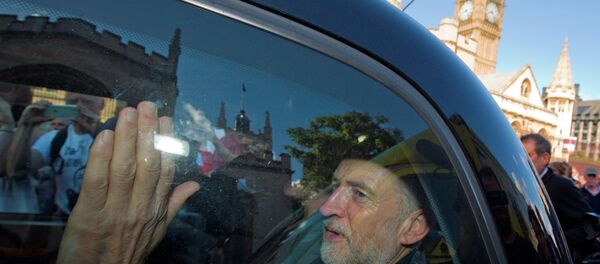Kristian Rouz — The United Kingdom is determined to put an end to its ultra-accommodative monetary policies as soon as in early 2016, as indicated by the recent statements from both Bank of England and the UK Government, due to the rising workforce costs and wages and the acceleration in broader economy. The UK situation is reminiscent of that in the United States, with inflation severely underperforming in both nations amidst other very favourable macroeconomic indicators.
The global currency war and wave of devaluations across the Eurozone, Japan, China and most of developing world are stirring concerns of both the pound sterling and the dollar's strength as threats to economic expansion in their respective host nations. Nonetheless, both London and Washington are preparing to lift-off their central banks' base interest rates as to stave off the looming overheating in their financial markets.
These remarks have come amidst the expectations of the US Federal Reserve to hike its base interest rate by this year's end.
The Bank of England's Monetary Policy Committee (MPC) voted this month to keep base rates unchanged, with only one board member, Ian McCafferty, having voted in favour of a hike. Similarly, the Federal Open Market Committee (FOMC) of the US Federal Reserve at its 16-17 September meeting postponed the interest hike till later this year.
Following the MPC decision, the BoE chair Carney addressed the British Parliament, saying the economic expansion and labor costs allowing for a hike, however, the actual move will be decided upon in case inflation accelerates later this year — a situation very similar to that in the US.
"The decision comes into much sharper relief and it may be appropriate to begin withdraw stimulus at that point," Carney said to the British MPs.
The UK wages rose to their six-year highest this month, while joblessness rate dropped to 5.5% — close to the textbook definition of ‘full employment'. Economic expansion in the UK accelerated to 0.7% in Q2 from just 0.4% the previous quarter. The broader trend is optimistically upward for the island nation amidst the global stalemate of growth mediocrity, particularly evident in various European nations. Output in the British economy rose 2.6%, the overall GDP dynamics are now ‘typical' for the past two years, according to the Office of National Statistics (ONS). Adding to that optimism, the UK economy has now sustainably expanded for 10 consecutive quarters.
The UK inflation falters due to low industrial expenses, such as cheap fuel and energy. The sterling is strong compared to most of its peers — again, a situation reminiscent of the US dollar.
Another risk to the current BoE policy is rapidly rising wages. In case the UK labor costs overperform the BoE expectations, the financial services market may overheat quicker than the regulator will be able to respond with effective policy measures.
Now, as the BoE intention to tighten the UK monetary environment gained support from the cabinet, there is the only measure determining to whether or not hike the borrowing costs: inflation against labor costs. The loose monetary policies, introduced in 2008 in response to the global economic meltdown, have become obsolete for both the UK and the US amidst a more sustainable growth of recent years seen in both nations.




